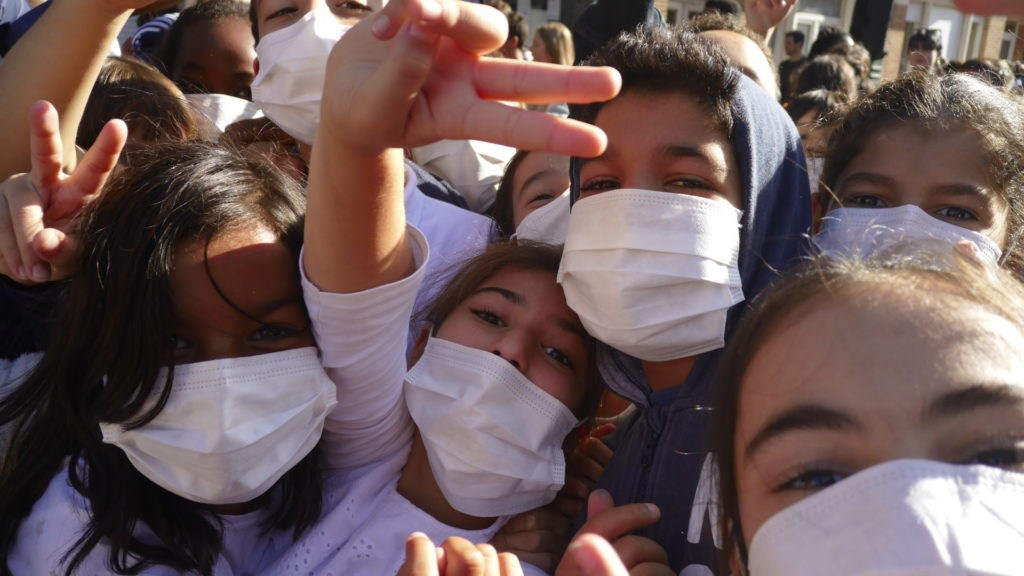Across the world, children rarely transmit the new coronavirus (Covid-19) to each other or adults, according to a commentary published in the Pediatrics journal, based on several studies.
The commentary, titled "COVID-19 Transmission and Children: The Child Is Not to Blame" was published in Pediatrics, the official peer-reviewed journal of the American Academy of Pediatrics.
The authors base their conclusions on a new study, "COVID-19 in Children and the Dynamics of Infection in Families," published in the current issue of Pediatrics, as well as four other recent studies examining Covid-19 transmission by and among children.
In the new study, the households of 39 Swiss children infected with Covid-19 were studied, and contact tracing revealed that in only three (8%) was a child the suspected index case, with symptom onset preceding illness in adult household contacts.
"The data are striking. The key takeaway is that children are not driving the pandemic," said one of the authors of the commentary, William Raszka, pediatric infectious disease specialists on the faculty of the University of Vermont's Larner College of Medicine.
"After six months, we have a wealth of accumulating data showing that children are less likely to become infected and seem less infectious. It is congregating adults who are not following safety protocols who are responsible for driving the upward curve," Raszka added.
The authors point to several studies, which show that children are very rarely the driving factor behind the disease.
In a French study they mention, a boy infected with Covid-19 exposed over 80 classmates at three schools to the disease, but none of them contracted it. However, the transmission of other respiratory diseases, such as influenza, was common at the same schools.
Related News
- Experts call for localised measures if a second coronavirus wave hits Belgium
- Belgian daycares should close only with two Covid-19-positive kids
- Lockdown: Belgium sends all students back to school from September
In a recent study in China, contact tracing demonstrated that, of the 68 children with Covid-19 admitted to hospital from 20 January to 27 February, 96% were household contacts of previously infected adults.
According to Raszka, the rising cases among adults and children in Texas childcare facilities (which have seen 894 cases among staff members and 441 among children in 883 child care facilities across the state), have the potential to be misinterpreted, but he has not studied the outbreaks.
"There is a widespread transmission of Covid-19 in Texas today, with many adults congregating without observing social distancing or wearing masks," he said.
"While we do not yet know the dynamics of the outbreak, it is unlikely that infants and children in daycare are driving the surge. Based on the evidence, it is more plausible that adults are passing the infection to the children in the vast majority of cases," Raszka said.
Additionally, models show that community-wide social distancing and widespread adoption of facial cloth coverings are far better strategies for curtailing disease spread, and that closing schools adds little.
The fact that schools have reopened in many Western European countries and in Japan without seeing a rise in community transmissions bears out the accuracy of the modelling, according to the authors.
The authors conclude that reopening schools, in a safe manner, this fall is important for the healthy development of children. "By doing so, we could minimise the potentially profound adverse social, developmental, and health costs that our children will continue to suffer until an effective treatment or vaccine can be developed and distributed, or failing that, until we reach herd immunity," they wrote.
Maïthé Chini
The Brussels Times

